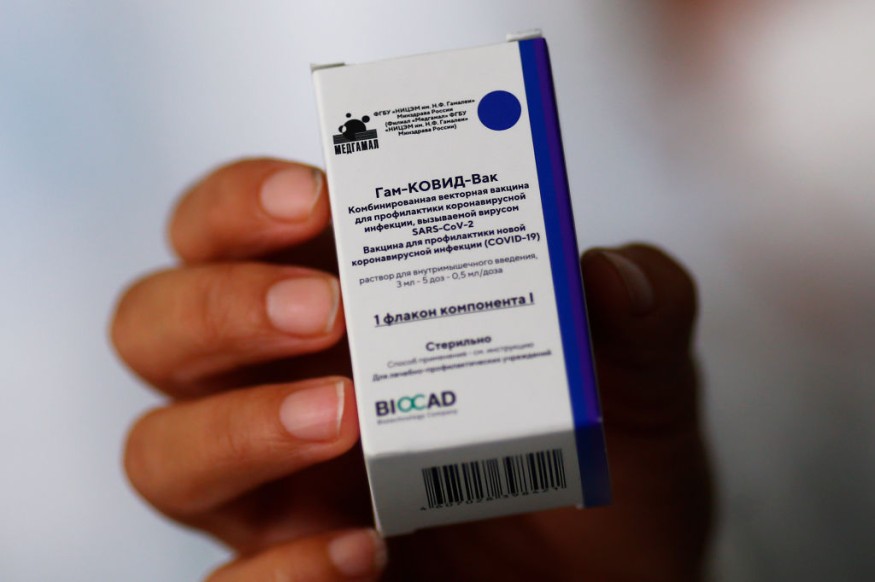Data from a preliminary review of a major clinical trial released in the British medical journal The Lancet on Tuesday found that the two-shot Sputnik V vaccine was 91.6% successful in preventing symptomatic Covid-19 and provided maximum safety against serious cases.
No significant side effects happened, the paper added. In older adults, the vaccination was also found to be equally safe and reliable.
The support of Sputnik V poses a major win in the global vaccination race for Russia, offering a vote of trust in the capacity of Russian science and medicine and helping to deflect some of Moscow's critiques of its rapid production of the vaccine and the absence of reported trial results.

What Makes Sputnik V Better
The efficacy rate of the Russian shot is almost equivalent to that of vaccines manufactured by Moderna Inc. and Pfizer Inc. and its German affiliate BioNTech SE, which are approximately 95% successful.
It outweighs the vaccine provided by the British-Swedish multinational pharmaceutical corporation AstraZeneca PLC, which, in late clinical trials, has reported efficacy rates of between 62% and 90%.
Russia, the fourth worst-hit country in the world with nearly four million incidents, has depended on Sputnik V to escape expensive new lockdowns as its economy reels from declining oil prices, a vital industry for the government. By the end of the year, officials here intend to vaccinate 60 percent of the domestic population.
According to a Wall Street Journal report, Sputnik V has so far been administered to more than two million citizens worldwide, including in Argentina, Serbia and Algeria. Some 15 countries have now approved Sputnik V outside of Russia. Moscow has issued orders or expressions of interest for 2.4 billion doses, including Brazil, Mexico, and India.
Reading University, and Polly Roy wrote in the Lancet at the London School of Hygiene & Tropical Medicine. "But the results reported here are clear, and the scientific principle of vaccination has been demonstrated, which means that the fight to reduce the incidence of Covid-19 can now be joined by another vaccine."
Alexander Gintsburg, the head of the manufacturer of the vaccine, the Moscow-based Gamaleya Institute, said the evidence indicates the safety and strong effectiveness of Sputnik V against the virus.
Will Sputnik V Work Vs. New COVID-19 Strains?
The Lancet research did not discuss the efficacy of the shot against new virus variants, despite some early signs indicating that strains may prove immune to current vaccinations.
Russian officials said they are continuously checking Sputnik V against new models on Tuesday, and they hope that the shot would reach the same degree of effectiveness. They also expect it, based on early experimental laboratory data, to have long-term immunity for as long as two years.
The findings released on Tuesday were focused on an interim study of about 20,000 patients in a Phase 3 experiment, three-quarters of whom administered the vaccine while the remainder received placebo. The study was focused on a total of 78 reported cases of Covid-19, of which 62 in the placebo group and 16 in the vaccine group were reported. The clinical experiment is ongoing, with 40,000 participants in total.
Researchers observed that the Covid-19 vaccine did not cause significant adverse reactions, the Lancet paper stated. Flulike signs, discomfort at the site of injection, and fatigue were some of the side effects.
The vaccine was well-received among the elderly and displayed effectiveness of 91.8 percent, based on a sample of 2,144 participants older than 60, the journal said.
Sputnik V uses a so-called viral vector strategy, including other Covid-19 vaccines, including those produced by Johnson & Johnson and AstraZeneca. It introduces a genetically altered version of a harmless virus to act as a vehicle or vector for a fragment of the coronavirus genetic content, known as the adenovirus.
Check out more news and information on COVID-19 on Science Times.
© 2026 ScienceTimes.com All rights reserved. Do not reproduce without permission. The window to the world of Science Times.











